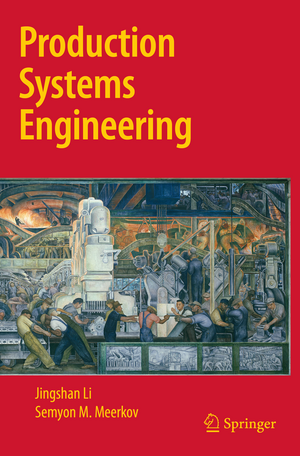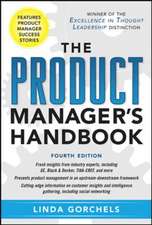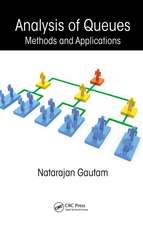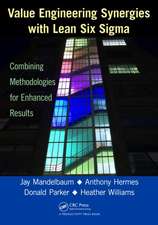Production Systems Engineering
Autor Jingshan Li, Semyon M. Meerkoven Limba Engleză Hardback – 14 dec 2008
| Toate formatele și edițiile | Preț | Express |
|---|---|---|
| Paperback (1) | 975.73 lei 6-8 săpt. | |
| Springer Us – 4 noi 2010 | 975.73 lei 6-8 săpt. | |
| Hardback (1) | 1190.30 lei 38-44 zile | |
| Springer Us – 14 dec 2008 | 1190.30 lei 38-44 zile |
Preț: 1190.30 lei
Preț vechi: 1545.85 lei
-23% Nou
Puncte Express: 1785
Preț estimativ în valută:
227.79€ • 236.94$ • 188.06£
227.79€ • 236.94$ • 188.06£
Carte tipărită la comandă
Livrare economică 10-16 aprilie
Preluare comenzi: 021 569.72.76
Specificații
ISBN-13: 9780387755786
ISBN-10: 0387755780
Pagini: 666
Ilustrații: XXX, 666 p. 299 illus.
Dimensiuni: 190 x 260 x 38 mm
Greutate: 1.54 kg
Ediția:1st ed. 2009
Editura: Springer Us
Colecția Springer
Locul publicării:New York, NY, United States
ISBN-10: 0387755780
Pagini: 666
Ilustrații: XXX, 666 p. 299 illus.
Dimensiuni: 190 x 260 x 38 mm
Greutate: 1.54 kg
Ediția:1st ed. 2009
Editura: Springer Us
Colecția Springer
Locul publicării:New York, NY, United States
Public țintă
ResearchDescriere
Production Systems Engineering (PSE) is an emerging branch of Engineering intended to uncover fundamental principles of production systems and utilize them for analysis, continuous improvement, and design. This volume is the first ever textbook devoted exclusively to PSE. It is intended for senior undergraduate and first year graduate students interested in manufacturing. The development is first principle-based rather than recipe-based. The only prerequisite is elementary Probability Theory; however, all necessary probability facts are reviewed in an introductory chapter. Using a system-theoretic approach, this textbook provides analytical solutions for the following problems: mathematical modeling of production systems, performance analysis, constrained improvability, bottleneck identification and elimination, lean buffer design, product quality, customer demand satisfaction, transient behavior, and system-theoretic properties. Numerous case studies are presented. In addition, the so-called PSE Toolbox, which implements the algorithms developed, is described. The volume includes numerous case studies and problems for homework assignment.
Cuprins
Part I: Background Material and Mathematical Modeling: Introduction.- Mathematical tools: elements of probability theory.- Mathematical modeling of production systems.- Part II: Serial Production Lines with Bernoulli Model of Machine Reliability.- Analysis of Bernoulli lines.- Continuous improvement of Bernoulli lines.- Design of lean Bernoulli lines.- Customer demand satisfaction in bernoulli lines.- Transient behavior of Bernoulli lines.- Closed Bernoulli lines.- Part III: Serial Production Lines with Continuous Time Models of Machine Reliability.- Analysis of exponential lines.- Analysis of non-exponential lines.- Improvement of continuous lines.- Design of lean continuous lines.- Customer demand satisfaction in continuous lines.- Part IV: Summary, Toolbox and Appendices.- Summary of main principles of production systems engineering.- Production systems engineering toolbox.
Textul de pe ultima copertă
Production Systems Engineering (PSE) is an emerging branch of Engineering intended to uncover fundamental principles of production systems and utilize them for analysis, continuous improvement, and design. This text, the first devoted exclusively to PSE, is intended for senior and first year graduate students interested in manufacturing, as well as engineers involved in the operation, management, and design of production systems.
Drawing upon years of research and practical experience and using numerous examples and illustrations, Jingshan Li and Semyon Meerkov cover:
Drawing upon years of research and practical experience and using numerous examples and illustrations, Jingshan Li and Semyon Meerkov cover:
- Methods for mathematical modeling of production systems
- Techniques for designing continuous improvement projects with predictable results
- Quantitative methods for selecting lean buffering
- Rigorous techniques for identifying bottleneck machines and bottleneck buffers
- Product quality
- Methods for analysis of transient behavior of production lines
- Techniques for measurement-based management of production systems
- Numerous case studies which illustrate practical application of PSE techniques
- The PSE Toolbox, which implements the algorithms developed in the text
Caracteristici
Describes methods for mathematical modeling of production systems
Provides techniques for designing continuous improvement projects with predictable results
Offers quantitative methods for selecting lean buffering
Offers measurement-based techniques for identifying bottleneck machines and bottleneck buffers
Addresses the issue of product quality
Describes methods for analysis of transient behavior of production lines
Offers techniques for measurement-based management of production systems
Describes a software package, the PSE Toolbox, which implements algorithms developed
Includes numerous case studies, which illustrate the topics considered and, on occasion, serve as problems for homework assignments
Provides techniques for designing continuous improvement projects with predictable results
Offers quantitative methods for selecting lean buffering
Offers measurement-based techniques for identifying bottleneck machines and bottleneck buffers
Addresses the issue of product quality
Describes methods for analysis of transient behavior of production lines
Offers techniques for measurement-based management of production systems
Describes a software package, the PSE Toolbox, which implements algorithms developed
Includes numerous case studies, which illustrate the topics considered and, on occasion, serve as problems for homework assignments









